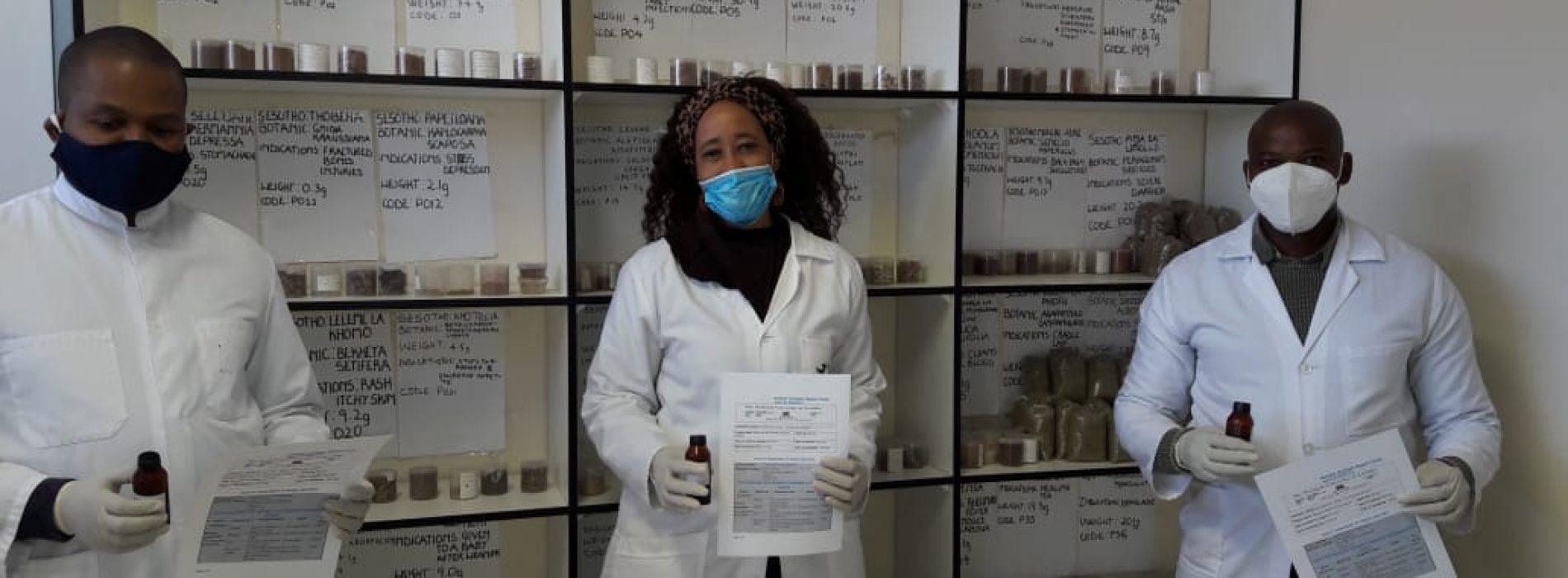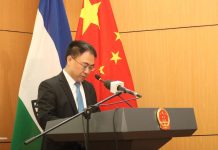Africa-Press – Lesotho. EFFORTS by the National University of Lesotho (NUL) to develop an anti-Covid-19 drug have stalled due to lack of funds. The drug passed laboratory tests showing it can work against the coronavirus after samples were sent for lab tests at the South African Council for Scientific and Industrial Research (CSIR) last year.
The results revealed that the drug compound is active against the two strains of Coronaviruses tested (SARS-CoV-2 and MERS-C0V). In addition, the results indicated that the drug compound did not show cytotoxicity (i.
e. it is safe to animal cells) and has a high therapeutic index (i. e. it can be a good drug candidate against Covid-19). The scientist leading the project, Dr Lerato Seleteng-Kose, said there has not been any progress for further tests or undertaking preclinical and clinical trials.
“Previously, we received a quotation of M7 million for the preclinical and clinical trials,” Dr Seleteng-Kose said.
“However, it later became apparent that the quote had included other thematic areas, which were outside the scope of this Covid-19 project,” she said.
“Currently, the quotation specific to pre-clinical and clinical trials is now estimated at around M4 million, even though this cost excludes other logistics such as transporting the potential drug to the institution that will be undertaking the trials,” she said.
After getting positive results from the CSIR, the expectation was that everything would be completed within a period of three to six months, although this would depend on availability of funds.
“Surprisingly, the results were received in November 2020, but nothing has materialised eight months down the line,” she said.
She said that following the positive results after testing it against the coronavirus in the laboratory in Pretoria, the drug is supposed to be taken for further tests, namely pre-clinical and clinical tests.
“These are screening of the effectiveness of the potential drug in animals and humans respectively. However, the main challenge is getting funding to undertake such tests.
”
Dr Seleteng-Kose said efforts to get investors for the pre-clinical and clinical trials have been in vain.
She said even the M100 000 that was required for testing the potential drug at the CSIR last year “was settled by myself and business partner Motiki Beleme”.
“This potential drug can only be approved by the World Health Organisation (WHO) and recognised internationally if preclinical and clinical trials have been undertaken and found to be positive,” she said.
She revealed that the main requirement for the trials is funding, which is currently not available. “Indeed there are rumours that the World Health Organisation is not considering initiatives from under-developed countries.
However, I want to give them the benefit of doubt, and I am hopeful that should we get funding and continue with the pre-clinical and clinical trials, something positive will come from our small country, and the WHO will ultimately consider it as important.
” She said the potential drug was targeted specifically towards Covid-19.
“However, this should not be confused with the other developed product (cough mixture) which is targeted towards respiratory ailments such as coughs, colds and flu,” she said.
“Nevertheless, it is important to note that these respiratory ailments are some of the signs and symptoms of Covid-19. Therefore cough mixtures are capable of alleviating some of the Covid-19 associated symptoms to some extent. ”
In her view, the initiative is not about competition, “but about coming up with various solutions to a fatal pandemic that the whole world is facing”.
“If different drugs are developed by various scientists worldwide, then people would have a wide choice, particularly in terms of accessibility and affordability,” she said.
“Similarly, there are various vaccines available for Covid-19 and none competes with the other, instead they give people a wide choice.
”
She said the government supported the initiative through the former Minister of Communications, Chief Thesele ’Maseribane, who took the samples to the CSIR in Pretoria for testing, during the hard lockdown in July 2020.
“The current Minister of Communications has also shown some interest, and even visited NUL to get details of the project. However, there has not been any financial assistance in the matter,” she said.
Other team members include Dr Liteboho Maduna (MSc Medicinal Microbiology), Professor Mosotho George (Chemistry), Oriel Hlokoane (Medicinal Chemistry), Beleme Motiki (B.
Sc. Chemical Technology). A CSIR Array Tech Research Centre report published in November 2020 said the centre received two plant extracts from the NUL for testing against the virus.
“In all cases, the extracts didn’t show any sign of toxicity,” the report reads. The Centre however, recommended testing in animals before any human clinical trial.
For More News And Analysis About Lesotho Follow Africa-Press






